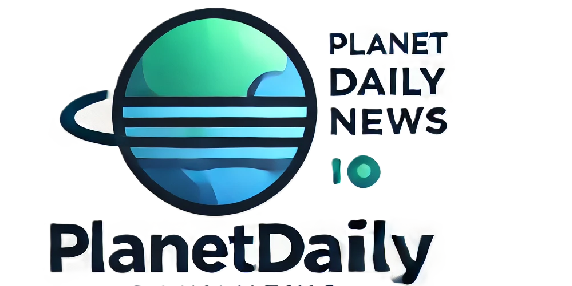Comprehensive Analysis of Today’s Top World Politics Events
In a rapidly changing world, keeping abreast of current global political events is crucial. As of December 1st, 2023, the international political landscape is marked by significant developments that could redefine international relations and influence domestic policies across nations. Understanding these changes requires not only a close examination of today’s top political stories but also an insight into the dynamics that drive these events.

In this article, we delve into the most pressing international news updates, analyzing the implications of these developments on world politics. From power shifts in major nations to geopolitical conflicts in critical regions, each event is a piece of a larger puzzle that shapes the global order. This article serves as a guide to the complex and ever-evolving field of global politics.
Section 1: Power Shifts in Major Nations
The Rise of New Political Leaders
In several major nations, the emergence of new political leaders is a defining characteristic of the current political climate. These leaders often bring fresh perspectives and policies that can dramatically alter their countries’ domestic and international trajectories. For instance, in the United States, a new administration is navigating complex political terrains both domestically and abroad, affecting global diplomatic relations and economic policies.
This shift in leadership also reverberates in geopolitical strategies, as these leaders seek to establish their nations’ positions in world politics. Whether it is through bilateral agreements or participation in multilateral organizations, such power shifts often lead to realignments in international alliances and partnerships.
Impacts on Global Trade and Economy
The influence of new political leaders extends to global trade and economic policies. Renowned economists and political analysts highlight how innovative economic measures introduced by key global players can impact international trade agreements. For example, changes in tariffs or trade regulations by powerful economies like China or the EU have ripple effects on smaller, dependent economies.
Moreover, these shifts can lead to economic realignments, where emerging markets gain prominence as new trade partners. Subsequently, this can alter the power dynamics within existing economic coalitions, thereby influencing global political strategies.
Shifts in Foreign Policies
One of the hallmarks of new political leadership is the re-evaluation and potential restructuring of foreign policies. Countries revisiting their foreign policy agendas can either lead to diplomatic rapprochement or increased tensions. A prominent example can be seen in the Middle East, where renewed diplomatic efforts are being made to stabilize long-standing conflicts.
Such transformations in foreign policy often involve re-assessing alliances and seeking new ones, reflecting a country’s strategic aims and priorities under new leadership. This serves as a reminder of how deeply interconnected domestic and foreign policies are in shaping world politics.
Section 2: Geopolitical Conflicts and Their Global Implications
Ongoing Regional Conflicts
Many regions around the world continue to be plagued by longstanding conflicts that have complex geopolitical implications. Conflicts in regions like the Middle East and Eastern Europe often involve multiple stakeholders, including global superpowers, which magnify their impact on world politics.
The dynamics of these conflicts can shift rapidly, influenced by political decisions, military actions, or diplomatic negotiations. Analysts suggest that any resolution in these areas could alter the balance of power, impacting international peace and security strategies.
Role of International Organizations
International organizations such as the United Nations (UN), NATO, the World Trade Organization (WTO), and the International Monetary Fund (IMF) play a pivotal role in mitigating geopolitical conflicts and fostering international cooperation. These entities are designed to provide platforms for dialogue, negotiation, and resolution, often focusing on promoting peace, stability, and economic prosperity. Their effectiveness, however, is often contingent on the willingness of member states to cooperate and adhere to established agreements, as well as on their ability to enforce such agreements through collective action.
For instance, peacekeeping missions, diplomatic mediation, and economic sanctions are tools commonly employed by these organizations to influence outcomes and maintain stability in regions experiencing conflict. Through these mechanisms, international organizations not only aim to resolve conflicts but also seek to set precedents for peaceful dispute resolution and the upholding of international law. Their involvement often serves as a barometer for international consensus on contentious issues, thereby reinforcing shared values and norms, particularly with regard to sovereignty, human rights, and justice.
Impact on Global Security
The presence of geopolitical conflicts has significant implications for global security, posing a range of challenges that extend far beyond regional borders. Issues such as terrorism, human rights violations, and humanitarian crises have become global concerns that require coordinated international action. Countries directly affected by these challenges often become focal points for international intervention and aid, with global actors prioritizing assistance aimed at restoring stability and fostering long-term development.
The complex interplay between conflict and security underscores the need for robust international frameworks designed to address these interconnected challenges. In response, global political entities work together to develop comprehensive policies and frameworks aimed at promoting stability and peace. These discussions often culminate in international treaties, agreements, and resolutions that establish norms, standards, and mechanisms to address issues like conflict prevention, disarmament, and the protection of human rights.
Moreover, international organizations play a critical role in addressing global challenges such as climate change, public health crises, and economic instability. Through coordinated action, these entities facilitate the sharing of resources, information, and expertise among member states, ensuring a more unified and effective response to crises. The United Nations, for example, has established specialized agencies, such as the World Health Organization (WHO) and the United Nations Environment Programme (UNEP), which address pressing global issues like pandemics and environmental sustainability.
In addition to peacekeeping and humanitarian aid, international organizations also shape global trade and economic policy. The World Trade Organization, for instance, promotes free and fair trade through the regulation of international commerce, ensuring that trade flows smoothly and that disputes are resolved in accordance with agreed-upon rules. Economic sanctions, trade agreements, and financial assistance from bodies like the IMF and World Bank are often employed to stabilize economies, reduce poverty, and encourage sustainable development.
The collective actions of international organizations also help mitigate the risk of regional instability spilling over into broader geopolitical tensions. By addressing root causes of conflict, such as poverty, inequality, and governance failures, these entities contribute to long-term peace and security. Global partnerships established through international organizations often lead to more coordinated responses to issues like refugee crises, ethnic tensions, and political instability.
In conclusion, international organizations play a crucial role in shaping global security and promoting peace, stability, and cooperation. By fostering dialogue, providing platforms for negotiation, and enforcing international norms, these entities contribute to a more interconnected and stable world order. While challenges such as political power struggles, uneven participation, and limited enforcement capacity remain, the continued collaboration and commitment of member states are essential in addressing the complexities of global security and maintaining international peace.
Section 3: Technological Advancements and Their Influence on World Politics
Cybersecurity and Political Stability
Increased reliance on technology within political infrastructures introduces cybersecurity as a critical area of focus. Nation-states are now investing heavily in cybersecurity to protect their political and economic interests from cyber threats and espionage.
The significance of cybersecurity in political stability is evident in recent incidents where cyberattacks have disrupted government operations, raising concerns about national security and electoral integrity.
The Role of Media and Communication Technologies
Media and communication technologies have transformed the dissemination and influence of political narratives globally. Platforms such as social media serve as influential tools for political campaigns and for mobilizing public opinion.
Moreover, these technologies also pose challenges, as misinformation and fake news can potentially destabilize societies and influence electoral outcomes. As a result, political entities are increasingly focusing on regulating and leveraging these platforms to enhance their strategies.
Artificial Intelligence in Governance
The integration of Artificial Intelligence (AI) in governance has emerged as a transformative trend within world politics. AI can enhance decision-making processes, improve public service delivery, and offer predictive analytics in policy-making.
However, the ethical implications of AI usage, such as privacy concerns and data security, are ongoing debates among policymakers, reflecting the delicate balance between technological advancement and ethical governance.

Frequently Asked Questions
How do current global political events influence international business?
The influence of current global political events on international business is profound. Political stability and policies affect trade agreements, investment climates, and market confidence. For instance, political unrest in a key trade region may lead to supply chain disruptions, impacting businesses globally.
What role do international organizations play in resolving geopolitical conflicts?
International organizations like the UN and NATO facilitate dialogue, apply diplomatic pressure, and sometimes deploy peacekeeping missions to resolve geopolitical conflicts. Their involvement often reflects broader international consensus and efforts to maintain peace and security.
How can advancements in technology affect world politics?
Technological advancements impact world politics by transforming communication methods, enabling cybersecurity, and influencing governance efficiency. Technologies such as AI provide powerful tools for political strategy and public administration, while also raising ethical and security issues.
In what ways are cybersecurity threats impacting international politics?
Cybersecurity threats impact international politics by challenging national security, electoral processes, and diplomatic relations. Governments worldwide are prioritizing cybersecurity measures to protect vital infrastructures and maintain political stability.
How do political shifts in major economies affect the global market?
Political shifts in major economies can influence global market trends through changes in fiscal policies, trade agreements, and regulatory practices. Such shifts can lead to volatility or growth opportunities depending on the nature of the political changes.
Conclusion
In summary, the current global political landscape is marked by considerable shifts in power dynamics, technological advancements, and ongoing geopolitical conflicts. Each of these facets plays a pivotal role in defining the world we live in today, affecting everything from international trade to national security.
By understanding these top political stories and international news updates, individuals and entities can better navigate the complexities of world politics. It is crucial for stakeholders across sectors to remain informed and adaptable in order to thrive in this ever-evolving landscape.
Key Takeaways
- New political leaders are reshaping domestic and international policies, impacting global alliances and economic systems.
- Geopolitical conflicts continue to affect global security and require active involvement from international organizations.
- Technological advancements are altering political landscapes, particularly through cybersecurity, media influence, and AI in governance.
Video Topics Suggestions
- The Impact of New Political Leadership on International Relations
- Understanding the Role of Technology in Modern Politics
- Simplifying Geopolitical Conflicts: Key Players and Outcomes
source: www.cambridge.org
Read also: Health and Society




